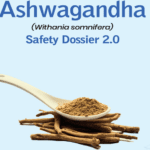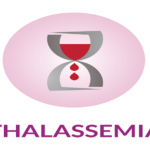First of all, we’re pleased to have interpretation services available in Portuguese today, and I’d like to welcome all Portuguese-speaking journalists. The next will be Swahili and Hindi, and we will continue as WHO to invest in multilingualism, because our beauty is our diversity.
WHO remains committed to providing access to as much as information as possible, in as many languages as possible, and reach every corner of our world.
I have said since the beginning that the most important resource in the fight against COVID-19 is solidarity. Solidarity, solidarity, solidarity. The launch of the Access to COVID-19 Tools Accelerator on Friday was a powerful demonstration of that solidarity.
WHO is deeply grateful to the many world leaders and partners who have come together to ensure no-one misses out on life-saving vaccines, diagnostics or therapeutics.
We look forward to more countries and stakeholders supporting this global collaboration, this global movement. This initiative is a vital investment in the response, both for the short term and the long term. Diagnostics are helping us now to find cases and ensure people are isolated and get the right care. And we’re hopeful that the Solidarity Trial will shortly help us to understand which therapeutics are the most safe and effective for treating patients. But ultimately, we will need a vaccine to control this virus.
The success in developing effective drugs and vaccines for Ebola reminds us of the enormous value of these tools – and the enormous power of national and international collaboration to develop them. WHO played a key role in the development of the Ebola vaccine, and we’re doing the same for COVID-19.
Developing a COVID-19 vaccine has been accelerated because of previous work WHO and partners have done over several years on vaccines for other coronaviruses including SARS and MERS. Although COVID-19 is taking a heavy toll, WHO is deeply concerned about the impact the pandemic will have on other health services, especially for children. Children may be at relatively low risk from severe disease and death from COVID-19, but can be at high risk from other diseases that can be prevented with vaccines.
This week is World Immunization Week.
Immunization is one of the greatest success stories in the history of global health. More than 20 diseases can be prevented with vaccines. Every year, more than 116 million infants are vaccinated, or 86% of all children born globally.
But there are still more than 13 million children around the world who miss out on vaccination. We know that that number will increase because of COVID-19. Already, polio vaccination campaigns have been put on hold, and in some countries, routine immunization services are being scaled back or shut down.
With the start of the southern hemisphere flu season, it’s vital that everyone gets their seasonal flu vaccine. Even when services are operating, some parents and caregivers are avoiding taking their children to be vaccinated because of concerns about COVID-19a and myths and misinformation about vaccines are adding fuel to the fire, putting vulnerable people at risk.
When vaccination coverage goes down, more outbreaks will occur, including of life-threatening diseases like measles and polio. Gavi, the Vaccine Alliance, has estimated that at least 21 low- and middle-income countries are already reporting vaccine shortages as a result of border closures and disruptions to travel.
So far, 14 vaccination campaigns supported by Gavi against polio, measles, cholera, human papillomavirus, yellow fever and meningitis have been postponed, which would have immunized more than 13 million people.
The tragic reality is that children will die as a result.
Since 2000, Gavi and partners including WHO have helped vaccinate more than 760 million children in the world’s poorest countries, preventing more than 13 million deaths. Gavi has set an ambitious goal to immunize 300 million more children with 18 vaccines by 2025. To reach this goal, Gavi will require US$7.4 billion in its upcoming replenishment.
We call on the global community to ensure Gavi is fully funded for this life saving work. This is not a cost, it’s an investment that pays a rich dividend in lives saved. Just as immunization has been disrupted in some countries, so have services for many other diseases that afflict the poorest and most vulnerable people – including malaria.
As you know, Saturday was World Malaria Day. A new modelling analysis published last week estimates the potential disruption to malaria services from COVID-19 in 41 countries in sub-Saharan Africa. In the worst-case scenario, the number of malaria deaths in sub-Saharan Africa could double.
But that doesn’t have to happen, and we are working with countries and partners to support them to put measures in place to ensure that services for malaria continue even as COVID-19 spreads.
As lockdowns in Europe ease with declining numbers of new cases, we continue to urge countries to find, isolate, test and treat all cases of COVID-19 and trace every contact, to ensure these declining trends continue. But the pandemic is far from over. WHO continues to be concerned about the increasing trends in Africa, Eastern Europe, Latin America and some Asian countries.
As in all regions, cases and deaths are underreported in many countries in these regions because of low testing capacity. We are continuing to support these countries with technical assistance through our regional and country offices, and with supplies through Solidarity Flights.
In the past week, we have delivered supplies to more than 40 countries in Africa, and more are planned.
Globally, WHO has shipped millions of items of personal protective equipment to 105 countries, and lab supplies to more than 127 countries. We will ship many millions more in the weeks ahead, and we’re preparing aggressively.
Later this week WHO will launch its second Strategic Preparedness and Response Plan, with an estimate of the resources needed for the next stage of the global response. I would like to thank the People’s Republic of China, Portugal and Viet Nam for their recent contributions to WHO’s Strategic Preparedness and Response Plan.
We’re also grateful to the more than 280,000 individuals, corporations and foundations who have contributed to the Solidarity Response Fund, which has now generated more than US$200 million. And I thank FluLab especially for its contribution of US$10 million.
We have a long road ahead of us, and a lot of work to do. WHO is committed to doing everything we can to support all countries. But political leadership is also essential, including the vital role of parliaments. As a former parliamentarian, I fully recognize the big role that parliaments can play.
Tomorrow I will be participating in a webinar for parliamentarians hosted by WHO, the Inter-parliamentary Union, and the United Nations Office for Disaster Risk Reduction, to discuss the role parliaments can play to reduce risks, strengthen emergency preparedness and increase resilience.
I continue to call for the world to come together in solidarity and national unity to confront this pandemic, but also to prevent the next one, and to build a healthier, safer, fairer world for everyone, everywhere. But I repeat: national unity is the foundation for global solidarity. Solidarity, solidarity, solidarity – that’s what we will say every single day. If we’re not united the virus will exploit the gaps between us and create havoc. Lives will be lost.
We can only defeat this virus through unity at the national level and solidarity at the global level.
Thank you.
Dr Tedros Adhanom Ghebreyesus
healthysoch


 Good morning, good afternoon and good evening.
Good morning, good afternoon and good evening.




